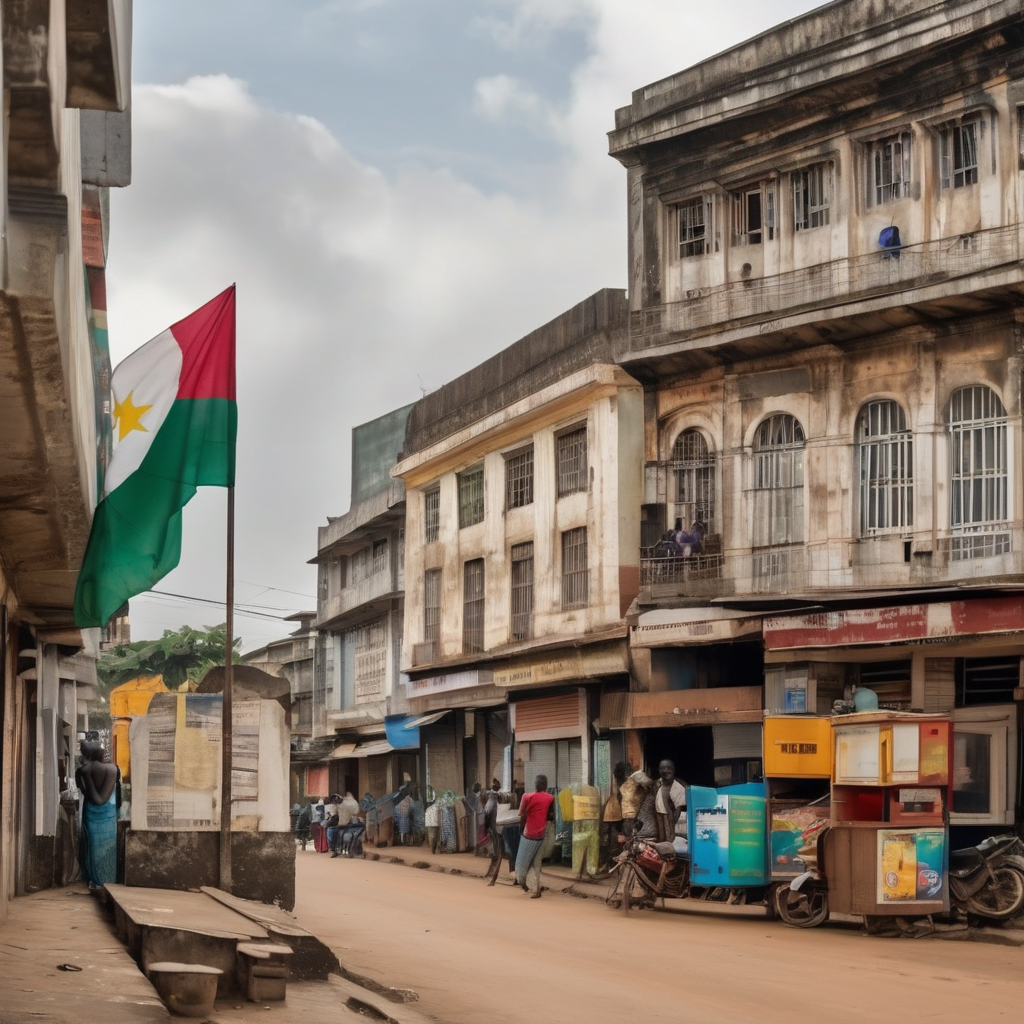Cameroon’s President Paul Biya, who has held power since 1982, has successfully claimed an eighth term in office, as reflected in the election results released recently. This victory has sparked violent clashes in the streets, particularly in Douala, the nation’s commercial capital, where opposition supporters have accused the government of electoral fraud. Armed groups supporting opposition candidate Issa Tchiroma Bakary responded with protests, erecting barricades with debris and burning tires as they expressed their outrage.
Police confronted the demonstrators with tear gas, leading to descriptions of streets that usually buzz with activity appearing eerily quiet. In a statement shared on social media, Biya, now 92 years old, expressed condolences for those who lost their lives during the post-election violence, highlighting the need for reconciliation amidst unrest. “My first thoughts are with all those who have unnecessarily lost their lives,” Biya remarked, as he emphasized the people’s trust in his leadership through the election results, which showed him winning with 53.66% of the vote against Tchiroma’s 35.19%.
Tchiroma, who has declared himself the rightful winner of the October 12 elections, lamented violence around his home in Garoua, where two civilians reportedly died from gunfire. With four casualties reported over the weekend during protests in Douala, political analyst Francois Conradie hinted at potential escalation in civil unrest, suggesting that many citizens do not accept Biya’s electoral victory and foresee challenges for his government.
Murithi Mutiga, the Africa Program Director at the International Crisis Group, noted that Biya’s mandate appears increasingly unstable with widespread disbelief in the legitimacy of the election results. He called for urgent national mediation to avert further violence.
Biya’s ruling tenure has coincided with significant stagnation in economic development in Cameroon, an oil and cocoa producer. The opposition, including Tchiroma, argues that voters are yearning for change after over four decades under Biya, a sentiment echoed by discontent in the region where other aged leaders also face similar pressures.
Interestingly, the political landscape reflects the growing demand for accountability and reforms in several African nations, as evidenced by events in Chad and Kenya, where public dissent has met with critical governmental responses. In a sign of discontent even within the presidential family, Biya’s daughter Brenda previously posted a TikTok video urging voters not to support her father.
With the backdrop of increasing calls for change, Tchiroma has emerged as a notable challenger, transitioning from government spokesperson to opposition leader, drawing considerable support from a coalition of civic groups. The ongoing transformation in Cameroon’s political sphere signifies both the turbulence of current events and the resilience of its citizens who are seeking a new direction.
